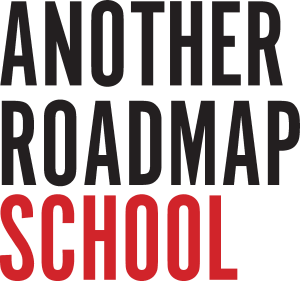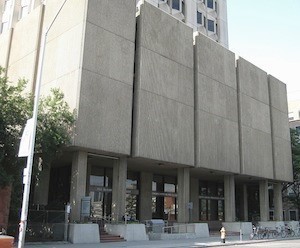The second international meeting of Another Roadmap was hosted by Rubén Gaztambide-Fernández (Associate Professor, Department of Curriculum, Teaching and Learning) and his colleagues at the Ontario Institute for Studies in Education of the University of Toronto (OISE) in February 2012, with fourteen participants including collaborators and representatives from partner organisations. The participants engaged in a discussion guided by the following questions:
1) How are the social change values that are at the core of many arts education practices negotiated in relation to creativity as it is understood through the lens of neoliberal social and economic reform?
2) How do creative educational processes shift when measured by economic and social output?
3) And conversely, beyond the re-shaping of creativity by economic discourses, how have transformative notions of creativity influenced how creativity is understood within dominant approaches to social and economic reform?
4) How has the “creative turn” manifested and evolved in different national and transnational contexts, and to in what ways does it challenge or reinstate complex colonial and postcolonial dynamics?
During the meeting, the group developed a framework for collaboration, identifying the key commitments that would serve as criteria for identifying future collaborators, investigators and partner organisations. This framework has served as a set of shared principles for identifying local “case studies” or “contact zones” (Pratt, 1992) for further examination, based on the following criteria:
1) within each “contact zone”, participants will engage in discussions, paying attention to dynamics of exclusion/inclusion, normalization, hierarchies and authority;
2) “contact zones” have a commitment to a politics of re-distribution, inter-sectionality, as well as recognition (and the relationship between the three), with attention to structural inequalities and social categories, (i.e. race, gender, sexuality, ability, class, age, etc.) and how these categories are mobilized (or not) within the particular context of the work;
3) projects within these “contact zones” are committed to notions of interdependence and the complex interconnections within and between economic, environmental, affective, symbolic, and other relationships; and
4) “contact zones” will allow for critically questioning terms and discourses such as creativity, self-expression, the arts, heritage, cultural expression, arts education, participation, community, and research.
The meeting ended in the joint formulation of a common framework and of areas of inquiry, which were included in a modified
draft of Another Roadmap
Framework
“Cases” involved in this project are engaged in reflexive conversations and actions around these interdependent commitments (to some degree, not necessarily equal or balanced):
- Ethics: attention to the “equal distribution” of reflexivity, engaging various “participants” equally in discussions about ethical and reflexive commitments; continues and equitable consultation of aims and purposes and criteria for accountability amongst participants; direct attention to dynamics of exclusion, inclusion, normalization, hierarchies and authority (e.g. the politics of “invitation”; acknowledging the “presences” and “present absences”);
- Political/social justice: commitment to a politics of re-distribution AND recognition (and relationship between the two); attention to and challenging structural inequalities, social categories, (i.e. race, gender, sexuality, ability, class, age, etc.), and close attention to how these categories are mobilized (or not) within the context of the work, with a commitment to critically engaging the politics of intersectionality as well as the lived experience of these categories and various processes of identification; environmental justice
- “Convivencia” and interdependence: attention to different dimensions of individual and collective well-being and attention to the various meanings related to “care” and “well-being”; understanding of the complex interconnections within and between economic, environmental, affective, symbolic, etc. relationships;
- Engagement and questioning of the terms used such as creativity, self-expression, Art and The Arts, heritage, cultural expression, arts education, participation, community.
Ares of inquiry:
a) What are the critical and reparative readings of the UNESCO document that emerge in these contexts, and how other commitments and articulations of core debates and agreements integrated into the work?
b) What are the local and global, official and unofficial, histories influencing the work in various geopolitical regions, including histories not directly identified as “arts education”?
c) What are the various commitments to social/political justice and how are these articulated in various contexts? What are the social and political stakes that emerge in various contexts in relationship to these practices?
d) What are the practices around which arts/aesthetic devices/cultural practices/creativity manifest in these spaces, including spaces that don’t identify as “arts education”?
e) How do “the arts” work at a discursive level in various settings with the above commitments, and how are meanings constructed around notions of “the arts” and what it means to be “an artist”?

